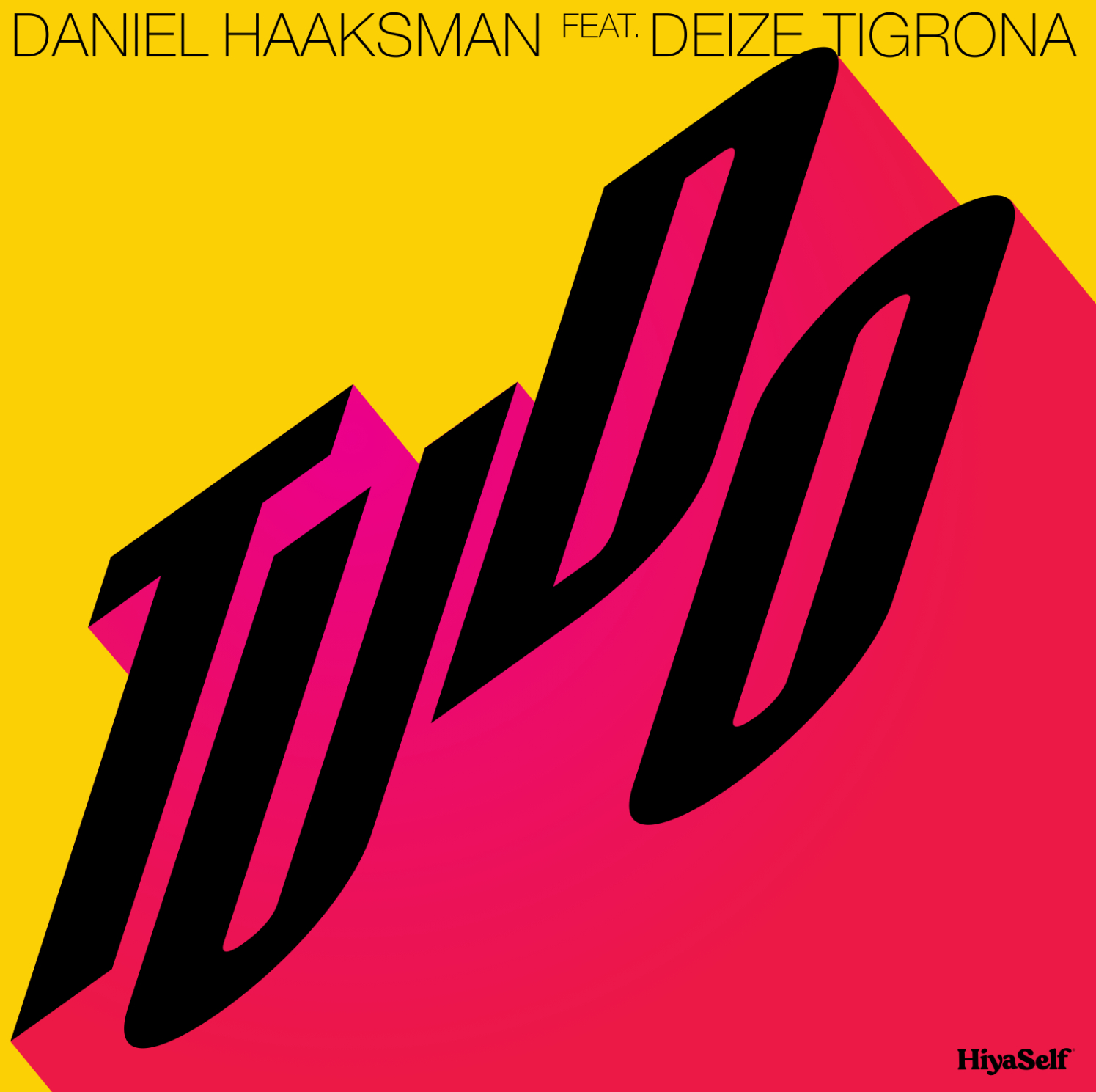Berlin based DJ/producer Daniel Haaksman has been a European ambassador for the sounds of Baile Funk and Afro Brazilian House since the release of his 2004 compilation ‘Rio Baile Funk Favela Booty Beats’. Following his latest release ‘Tudo’, we caught up with Daniel to discuss his recent collaborations and love for global music.
Hey Daniel! Thanks for chatting to Music is 4 Lovers. How’s your year been so far?
I’ve had great year. I released my 4th album ‘Sonido Lava’, played various festivals across Europe and I’m gearing up for 2024 with a set of new releases.
Your latest track ‘Tudo’ with Dieze Tigrona is out now on Nightmares on Wax’s ‘HiyaSelf Recordings’. What can you tell us about this release?
I’ve been a long time fan of Nightmares On Wax’s music. We’ve DJed a couple of times together, so I was thrilled when George (a.k.a. DJ Ease, a.k.a. Nightmares On Wax) asked me to release a track on his newly founded record label. I’ve just finished releasing the set of singles for my ‘Sonido Lava’ album, so ‘Tudo’ fitted in nicely.
You’ve been heavily influenced by global music. What is it about Baile Funk and Afro House that you find so compelling? Why have you been inspired by these styles in particular?
I allowed myself to change your question from “world” to “global” as “world music” is the 1980s term for music from around the world. It’s actually only used for releases from this period as the term illustrates a cliched Euro/US-centric view on music from outside of Europe and US that is “authentic”, “rootsy”, “exotic”. The term “global music” is more recent and is defined by transnational music hybrids that are rooted in the Southern hemisphere but mixed with international electronic and dance music styles.
So to answer your question, the world is big and there are so many interesting local music styles to check out; this inspires me. I started to dig baile funk in 2003 when I was bored with club music. Around this time for me, techno and house had become a cliché and hip hop was boring, so when a friend brought me some baile funk CDs from Rio that he bought on a street market, I was blown away by the powerful beats and freshness of how baile funk producers create amazing dance music with a limited set of samples. Baile funk of that period also used a lot of electro-funk and Miami bass samples (music I grew up with), so when I heard the way they chopped those samples and added afro Brasilian rhythms to it, it was very inspiring and ear opening. Baile funk, along with other styles from Brasil and Southern Africa, are rhythmically fresh and forward looking, much to the contrary to the unvaried sounds of techno, house or disco which haven’t seen innovation for many years.
Deize Tigrona delivers some infectious vocals on ‘Tudo’. What was the collaborative process like?
We’ve been friends for a long time. I’ve worked with Deize on various earlier releases for my label ‘Man Recordings’. She released a double feature contribution on an Oliver Dollar/Jesse Rose single and we released a very early collaboration of Deize with Diplo. I’ve also played with her many times in both South America and Europe. I recorded ‘Tudo’ with Deize in a Rio studio on my last visit, it’s about how music brings people together to dance.
What can you tell us about your own label, ‘Man Recordings’?
It started in 2005 as a platform for releasing baile funk. Outside of Brasil, there was no label releasing baile funk and I became the European ambassador for this sound. I released various series on the label such as ‘Baile Funk Masters’, where beat-makers and producers from Rio’s underground funk scene would release their own music, and ‘Funk Mundial’, where artists from Europe and the US would collaborate with MCs from Rio De Janeiro creating wild club music hybrids. Dave Taylor (aka Switch) remixed a track with Deize in 2006; it was the first baile funk house track to be released. Since then, I’ve put out more than 130 releases from a huge list of artists from around the world. Recently, the label released singles by Berlin’s La Byle and Lisbon’s Pedro Da Linha, and of course I also release my own music on my label.
As a Berlin based DJ, what sets your local scene apart from the rest of the world?
Because of the historic consequences of WW2 and the following division of the city, Berlin didn’t have much of it’s own economy compared to other German cities such as Munich, Frankfurt or Hamburg. When the Berlin Wall fell, the run-down part of East Berlin became an experimental playground for club culture, and throughout the 1990s and 2000s, it grew into club heaven. Many derelict houses and empty warehouses allowed a young electronic music scene to party without commercial or police restraints. As it attracted millions of tourists, Berlin’s club culture became a pillar of the local economy, shaping the image of Berlin as a hedonistic, open-minded place and a hotbed for electronic music culture. It’s no wonder that companies such as Ableton or Native Instruments come from Berlin, as their software and machines were first tested in Berlin clubs. Today, rents in Berlin are high and space is scarce; nevertheless, the city council tries to protect clubs from real estate economy and allow the remaining (yet shrunk) club scene to flourish.
Do you have anything lined up in the near future you can tell us about?
I’m currently working on a 2nd volume of my ‘Black Atlantica Edits’ series. In late spring 2024, there’ll be a re-release of my seminal ‘Rio Baile Funk Favela Booty Beats’ compilation, celebrating its 20th anniversary as well as a few remixes and new tracks. I’m also working on a book about the history of the transatlantic funk exchange. I’m very much looking forward to the future!
Buy ‘Tudo’ HERE




